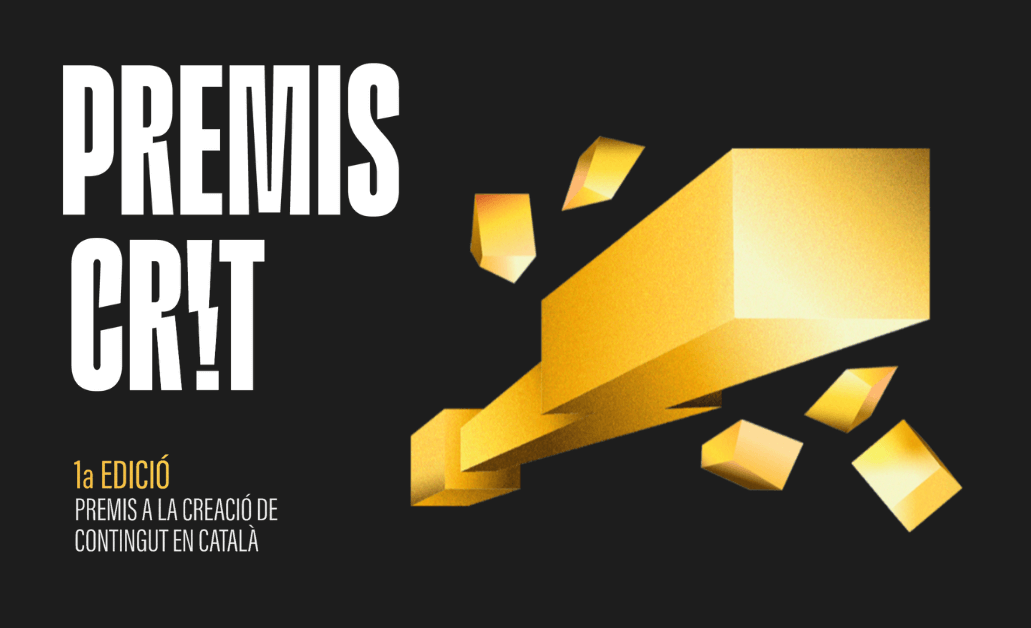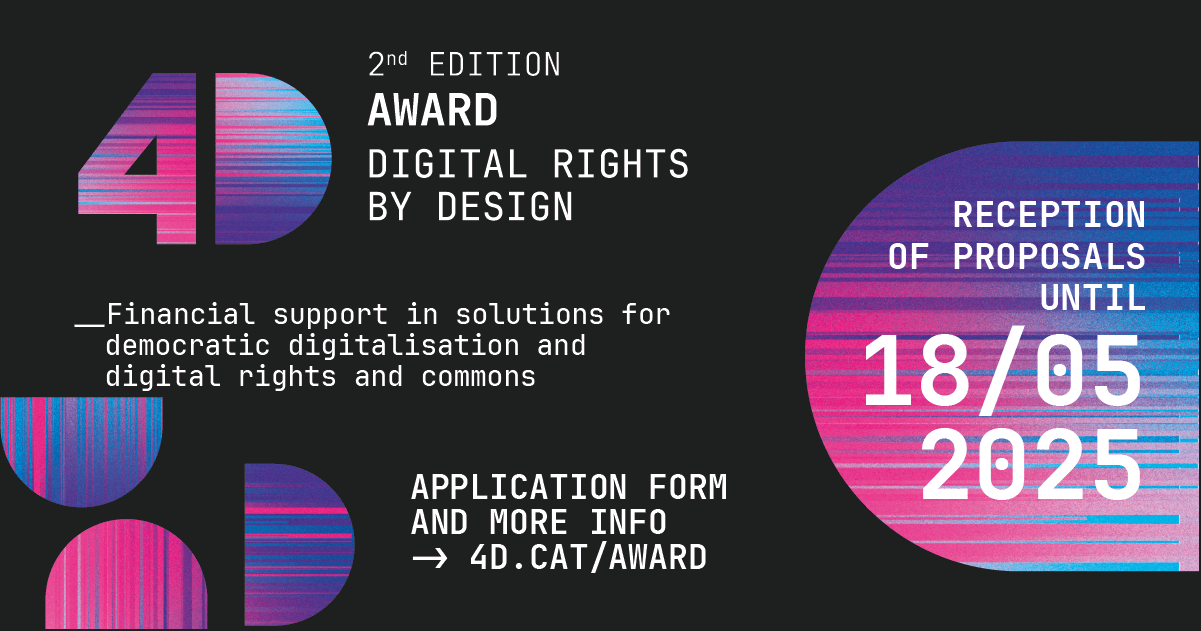4D award: 3 initiatives that revolutionise our digital rights
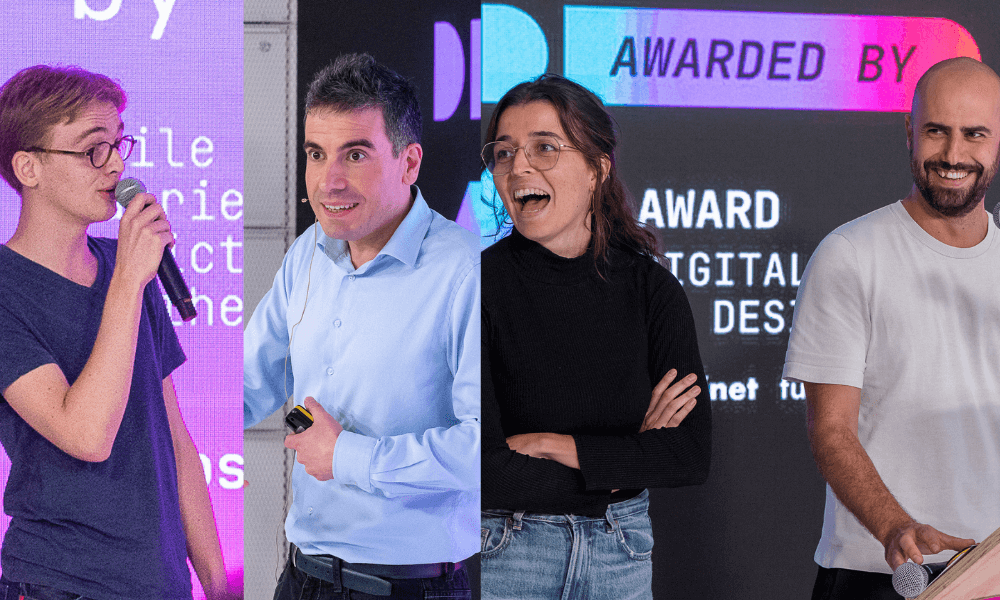
Last October 9, during the 4D European Conference, the Foundation .cat and Xnet team presented the awards for the 4D Award: digital rights by design. This call supports the development of technologies and actions that guarantee democratic digitalisation by design, both in the public and private spheres.
After a project pre-selection phase, the call had 18 finalist projects, all of them with free or open licenses and from very diverse places in Europe, such as Catalonia, the Balearic Islands, Euskadi, Cantabria, Murcia, Andalusia, Madrid, Castile and Leon, Germany, United Kingdom, Netherlands, France, Italy, Bosnia Herzegovina, Cyprus, Denmark, Portugal, Slovenia, Switzerland and Turkey.
From among these 18 finalists, Foundation .cat and Xnet chose 3 essential projects, which offer solutions for democratic digitization. All of them will receive financial support (€10,000 per project) and support during the coming year.
PUBLIC APPS by Jaime Gómez-Obregón | Cantabria
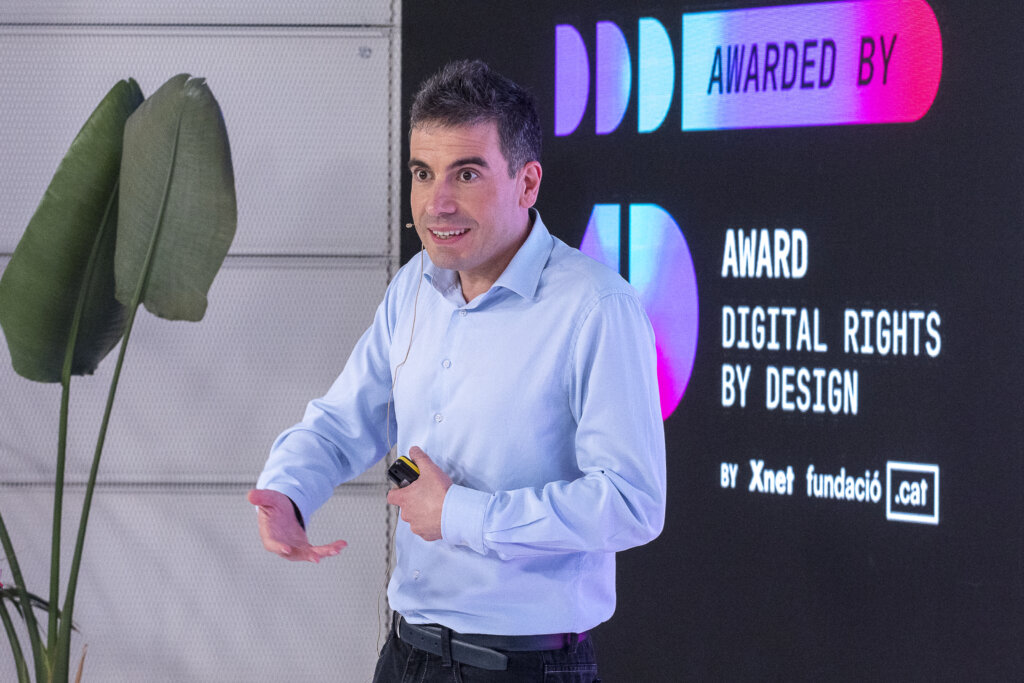
How many mobile applications created by Spanish public administrations fall into disuse shortly after their launch? Jaime Gómez-Obregón, creator of the Public Apps project, has thoroughly investigated this issue and revealed a worrying waste of public funds in the development of mobile applications that, in many cases, do not solve any real problems or meet the needs of citizens .
Through his analysis of real cases, Gómez-Obregón has denounced a recurring pattern in many Spanish municipalities: “we are facing a kind of epidemic of mobile applications, driven by the search for an image of a smart city without proper planning. This results in excessive spending on technology with no real benefits for the public.”
Gómez-Obregón, during his speech after receiving the award, charged forcefully against those media that, uncritically and meekly, spread each of the premieres of these applications without following up or demanding explanations with the amount of financial waste that goes into these projects: “many of these projects are born with fireworks, and over time they die quietly and discreetly without anyone ever missing them again. If they were really useful, there would be someone who missed them, but if we withdraw a digital public system and no one notices, haven’t we thrown away the money of the neighbors and the European taxpayers? The public doesn’t understand it, but the press doesn’t react enough to this farce, to all this fraud and to all this deceit to the taxpayers. The press should do it, but it doesn’t, so it’s up to us.”
With the award, Gómez-Obregón wants to publish Public Apps, an inventory of all the mobile applications we have in Spain and see which ones they are exactly, by downloading them and asking application download portals what ratings and comments they make users, in order to understand how citizens receive and rate them.
SKEPTIC READER by Domestic Data Streamers and Cedra Trust | Barcelona
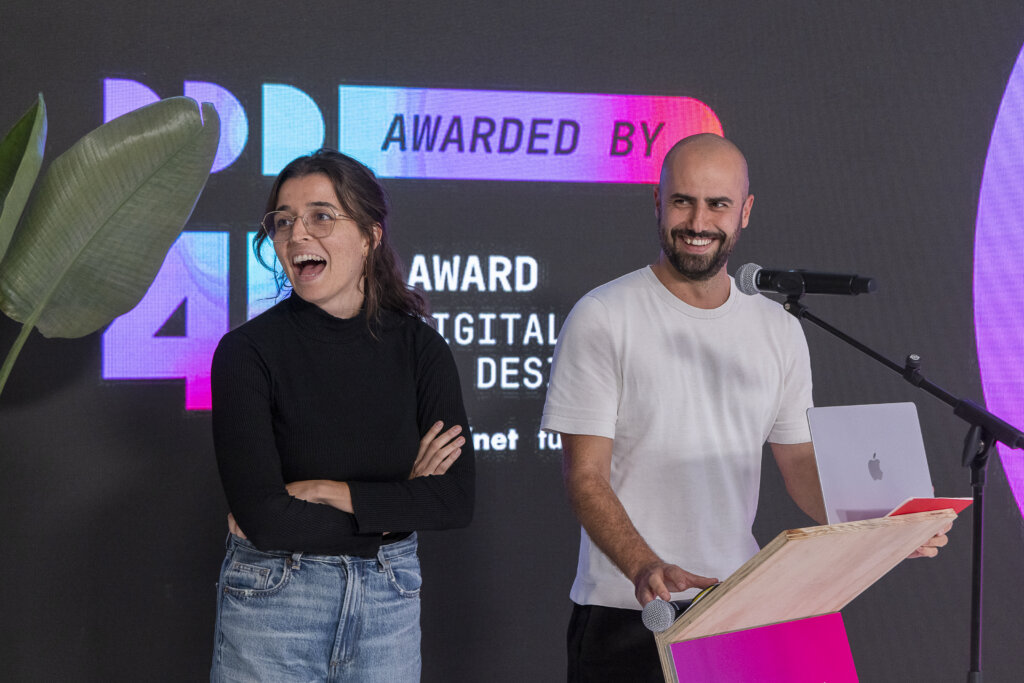
When you check content online, how do you verify if it is content that you can trust? The Domestic Data Streamers team gives us the answer with its Skeptic Reader extension, designed to identify logical fallacies and counter-argument suggestions, in order to give us a complete view but above all to enhance our critical thinking.
Domestic Data Streamers is a small studio from Barcelona that has been working for more than 10 years to see how we understand information, data and what relationship we have with it.
Axel Gasulla, director and founding partner of Domestic Data Streamers, emphasized that, in recent years, we spend more time than ever consuming information that has to do with our work, with our family, with our environment, but, everything and this, this time never turns out to be enough to get to everything: Information surpasses us.
In this sea of information, Skeptic Reader does not want to be an issuer of verified information, but wants to be a tool that allows the user to identify whether the content he is consulting is truthful or not.
Clara Vituri, design director of Domestic Data Streamers, explained that the appeal of Skeptic Reader is that it allows you to simultaneously read the analysis provided by the extension and at the same time the original article. The user can select in the Skeptic Reader dropdown what they want to analyze from the content they are consulting: Counterarguments, logical fallacies.
For now they have developed a first version, but they are on the way to developing a second one with a more attractive design and with the new functionality of the rigor percentage, which, from a scientific and technical point of view, analyzes whether the article quotes the sources, what biases it has within the language…
PAXOPHONE (PAXO) by Gabriel Rochet | France
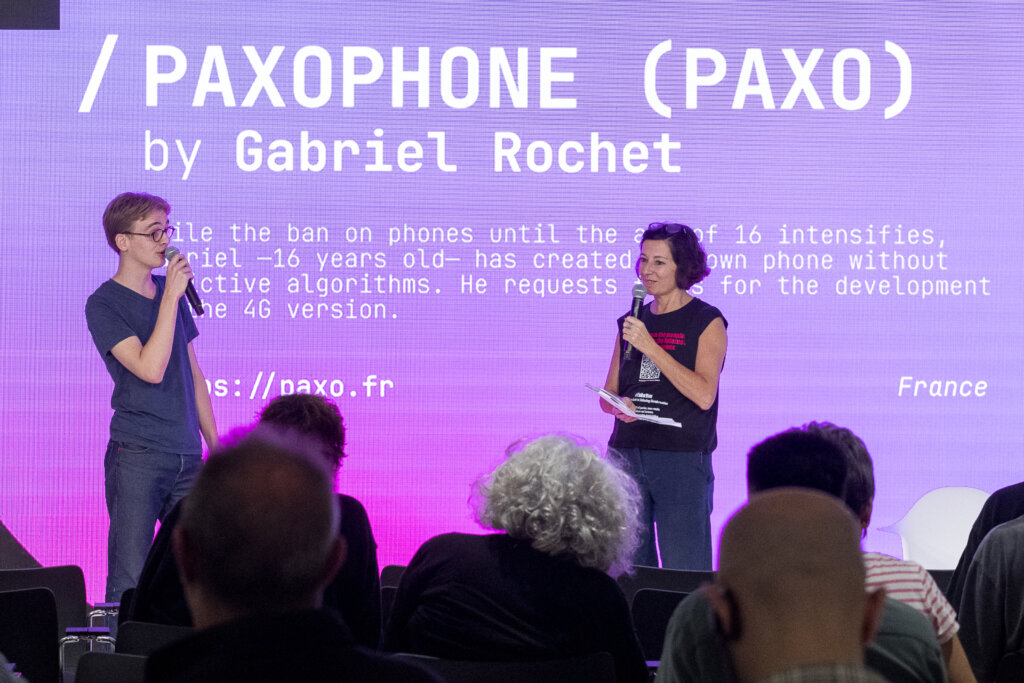
Often, the one who debates an issue and who makes the decisions is not the one who is affected by it. This is not the case for 17-year-old Gabriel Rochet, who, faced with the ban on phones for under-16s, created the Paxophone at just 14 years old, his own mobile phone free of addictive algorithms.
When collecting the award, Rochet confessed that being able to create the Paxophone was the result of a personal challenge that was marked 4 years ago when he started learning computers and electronics. However, Gabriel still wants to go much further.
Currently, he is working to create an open source development platform, so that all creators who want to can use it when developing projects, learn from open sources and, in a very open way, do it within Paxophone applications. At the same time, he wants this platform to be a space where Paxo applications can be easily obtained in the open, thus making it easier for anyone to set up a phone from home that is not linked to large companies and does not have social networks no addictive content built in, making the Paxop a truly open phone that anyone can easily get their hands on.
Gabriel has big plans for the future of his Paxophone. He aspires to find a way to extend the life of his phone, making it with fewer components and pollutants, creating it with a biodegradable casing.
Next steps
The 4D Award has proven to be a catalyst for innovative projects that are transforming our relationship with technology and its ability to improve our society when it has been developed ethically and responsibly. With an eye on the future, we announce that the new edition of the call will open in 2025. We want to encourage you, creators, developers and organizations involved with the cause to present your proposals and to join the Foundation. cat and Xnet in building a fairer and more democratic digital future. Stay tuned for updates!
